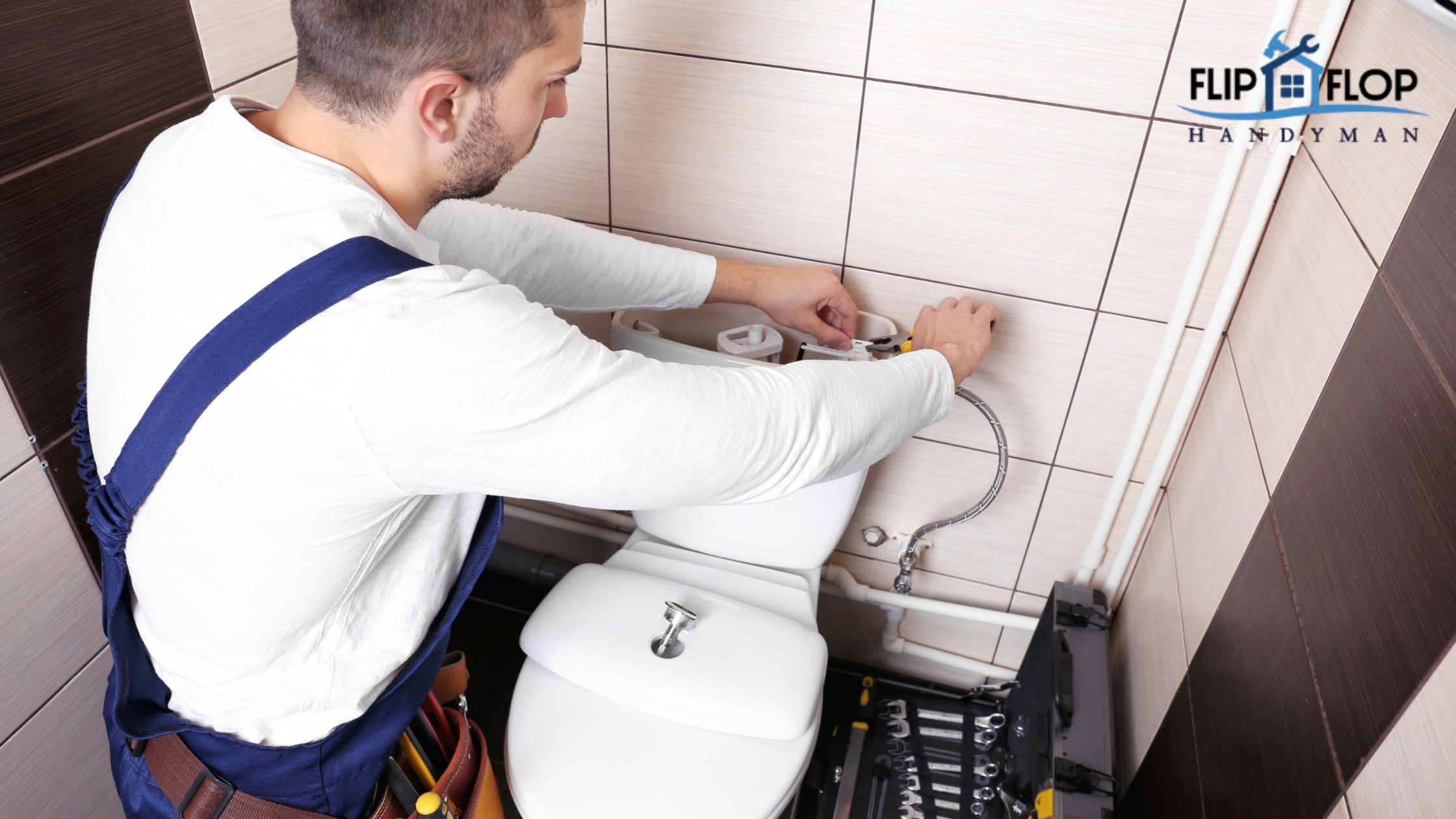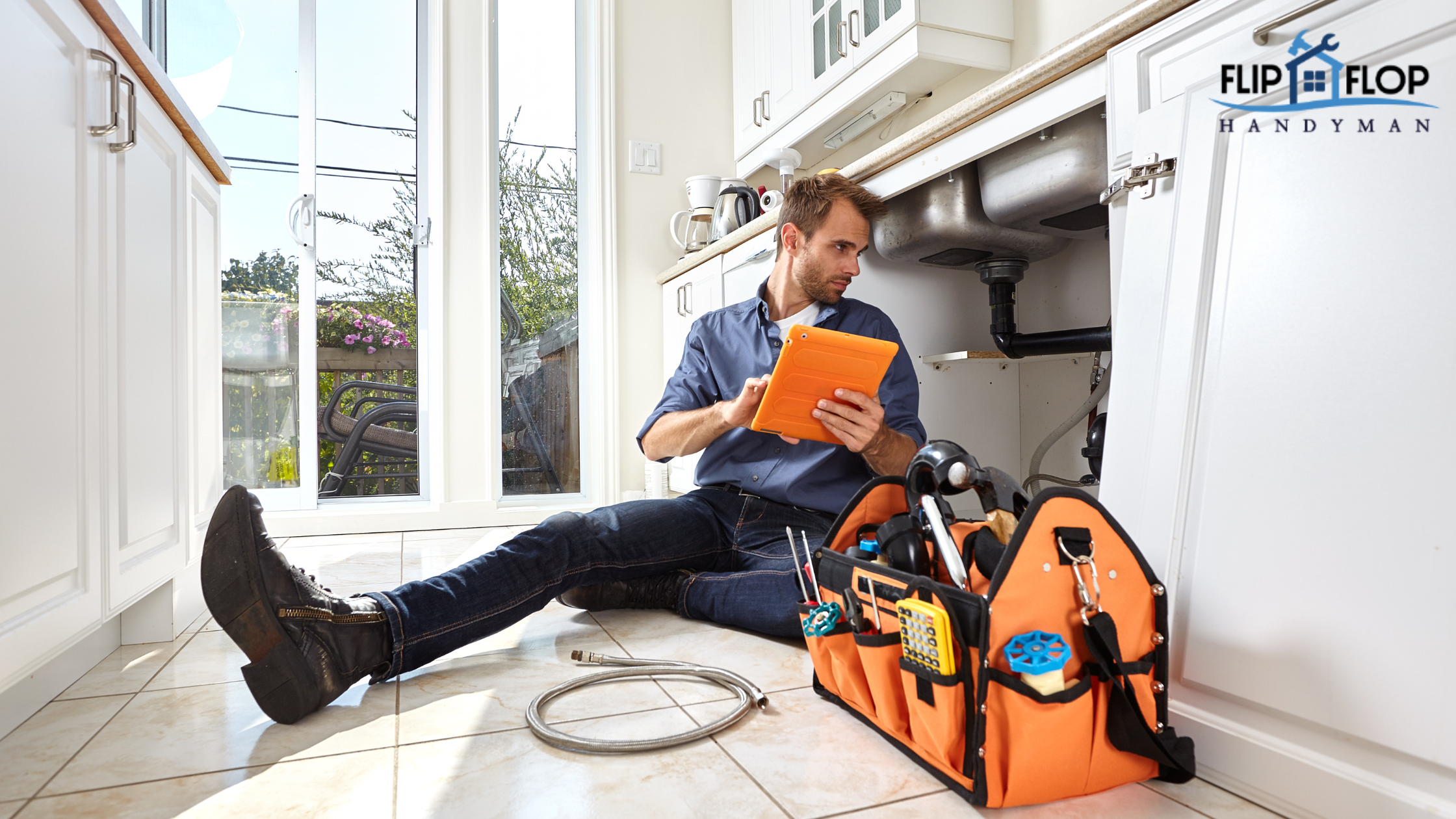Common Plumbing Problems and Solutions You Need to Know
Plumbing problems are a reality for any homeowner and can often appear when you least expect them. Common issues like clogged drains, leaky faucets, and low water pressure can disrupt your daily routine and, if ignored, lead to costly repairs. Understanding and tackling these common problems with the help of a skilled handyman plumber can save you time, money, and stress.This blog will explore the most frequent plumbing issues and provide practical solutions to keep your home running smoothly.
5 Common Plumbing Problems, Signs, Causes, Fixes and Prevention
Tackling Clogged Drains and Toilets
Signs of Clogs: Water backs up in sinks, showers, or toilets and might even overflow in the case of toilets.
Causes: Hair, small objects, and non-dissolvable waste often cause clogs by blocking the drain.
Fixes: Use a plunger to create suction and loosen the clog. If that doesn't work, try a drain cleaner or a plumbing snake.
Prevention: Only flush the dissolvable waste down the toilet and use hair catchers in showers. Monitor kids to ensure they don't flush toys or other objects.
When to Call an expert: If the clog persists despite your efforts or if you experience frequent blockages, it's time to call a professional. An expert handyman plumber can quickly diagnose and fix the problem, preventing further damage and ensuring your plumbing system works smoothly. Don't let a simple clog turn into a major headache.
Addressing Low Water Pressure
Identifying Low Water Pressure: Low water pressure can occur in old and new homes, making rinsing and showering difficult. It may happen suddenly or worsen gradually, so fixing it is essential for everyday water use.
Causes:
- External Issues: A water main break can reduce pressure for everyone in the area.
- Internal Leaks: Leaking pipes inside your home can cause low pressure. Check for leaks by turning off all taps, noting the water meter reading, waiting a few hours, and rechecking the meter. If it changes, you likely leak.
- Mineral Build-Up: Sediment in pipes, faucet aerators, or shower heads can slow water flow.
Fixes:
- Clean aerators and showerheads by soaking them in vinegar overnight or tying a vinegar-filled bag around them.
Prevention:
- Install a filtration system to prevent mineral build-up.
- Regularly check and repair leaks to maintain good water pressure.
When to Call an expert: If low water pressure persists despite your efforts or if you suspect a severe leak, it's time to call a professional plumbing services. Experts can quickly check and fix the issue, ensuring a boost in water pressure.
Fixing a Running Toilet

Identifying a Running Toilet: A running toilet is a common issue many homeowners face. It happens when water keeps flowing into the toilet bowl after flushing.
Causes: Various parts of the toilet can cause this issue, such as a faulty flapper, a broken chain, or a misadjusted float. These components control the flow of water from the tank to the bowl.
Fixes: Identify the problem by checking the flapper for a proper seal. Replace if worn or damaged. Inspect the chain; it should have slight slack. Adjust or replace as needed. Ensure the float is correctly set to stop the water flow.
Prevention: Regularly check and maintain toilet components to prevent wear and tear. Simple adjustments and replacements can keep your toilet running smoothly.
When to Call an expert: If the toilet continues to run despite these fixes or is unsure how to identify the problem, it's best to call a professional plumber. They can quickly diagnose and repair the issue, preventing water waste and higher utility bills.
Handling Leaky Faucets and Pipes
Identifying Leaks: Leaky faucets and pipes are common in apartments and houses. Dripping faucets are easy to spot and hear while leaking pipes often appear as puddles or dripping sounds.
Causes:
- Faucets: A damaged washer inside the tap usually causes dripping. This washer can tear, dislodge, or stiffen, leading to leaks. The valve seat may also wear out or corrode over time.
- Pipes: Leaks often occur at joints due to deterioration, shifting, high water pressure, or other damage.
Fixes:
- Faucets: To stop the leak, replace the damaged washer. This can be a DIY job, but specialty tools can make it easier, so consider calling a plumber.
- Pipes: Leaking pipes can be simple or complex to fix. Replacing a U-joint can be more accessible and cleaner when done by a professional.
Prevention:
- Faucets: Turn faucets on and off gently and avoid applying too much pressure to slow down wear and tear.
- Pipes: Regularly inspect pipes for moisture, small drips, rust, or white lime deposits that signal potential leaks.
When to Call a Plumber: If the leak persists after you try to fix it or if you're dealing with a complex pipe repair, it's best to call a professional handyman plumber. The experts can handle the issue efficiently and prevent further damage, saving you time and money in the long run.
Dealing with Hot Water Loss
Identifying the Problem: If your faucet no longer provides hot water or it takes too long to heat up, there might be an issue with your water heater. Possible problems include an undersized tank, poor placement, or an aging unit.
Causes:
- Small Tank: Your water heater tank might need to be more significant to meet your household needs.
- Poor Placement: If the water heater is too far from your faucets, it can take longer for hot water to reach them.
- Aging Unit: An old water heater might be losing efficiency or nearing the end of its life.
Fixes:
- Upgrade the Tank: If the tank is too small, consider upgrading to a larger conventional water heater or a tankless water heater, which is more efficient and lasts longer.
- Reposition the Heater: Ensure it is installed efficiently to provide hot water quickly and minimize damage risk if it leaks.
When to Call a Plumber: If you still experience hot water loss after trying these fixes, it's best to call a professionals. A plumber can diagnose the issue, whether it is a significant problem with the water heater or another underlying issue, and provide the necessary repairs to restore your hot water supply efficiently.
Final thoughts

Understanding common plumbing problems and knowing when to perform minor fixes or call for professional help can significantly extend the life of your plumbing system. Addressing issues like clogged drains, leaky faucets, and low water pressure early on prevents these problems from escalating into costly repairs.
Regular maintenance, combined with prompt action, helps maintain an efficient plumbing system and can also enhance the value and functionality of your home.
Whether it's a small repair or a larger plumbing project, having the right knowledge and the support of reliable home maintenance services can keep your home running smoothly year-round.
